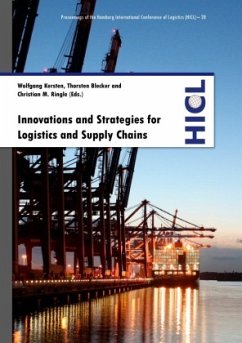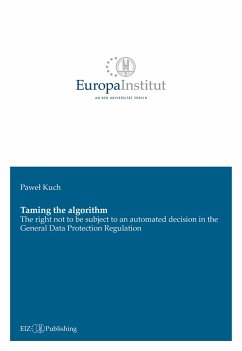
Designing Efficient Human-Algorithm Collaboration
Implications for Management Practice
Versandkostenfrei!
Versandfertig in 6-10 Tagen
19,99 €
inkl. MwSt.

PAYBACK Punkte
0 °P sammeln!
Companies across all industries increasingly use algorithms to assist managers in decision making, problem solving, and data analysis. Business leaders have no doubt that human-algorithm collaboration bears a high potential to increase productivity and performance in many areas. However, companies face challenges to create a collaborative environment that exploits the potential of advice-giving algorithms. To address this challenge, it is essential to know how the design of algorithms affects how humans use their advice for managerial tasks.This book aims at improving the understanding of how ...
Companies across all industries increasingly use algorithms to assist managers in decision making, problem solving, and data analysis. Business leaders have no doubt that human-algorithm collaboration bears a high potential to increase productivity and performance in many areas. However, companies face challenges to create a collaborative environment that exploits the potential of advice-giving algorithms. To address this challenge, it is essential to know how the design of algorithms affects how humans use their advice for managerial tasks.This book aims at improving the understanding of how decision makers work with algorithmic support systems to leverage the strengths of both humans and algorithms. Motivated by challenges from research and practice, this thesis demonstrates how algorithm transparency, the design of feedback, and the communication of algorithmic certainty affect the use of algorithmic advice for managerial tasks. The results reveal critical connections between the design of algorithms and the use of their advice, and enable us to derive important implications for management practice.












